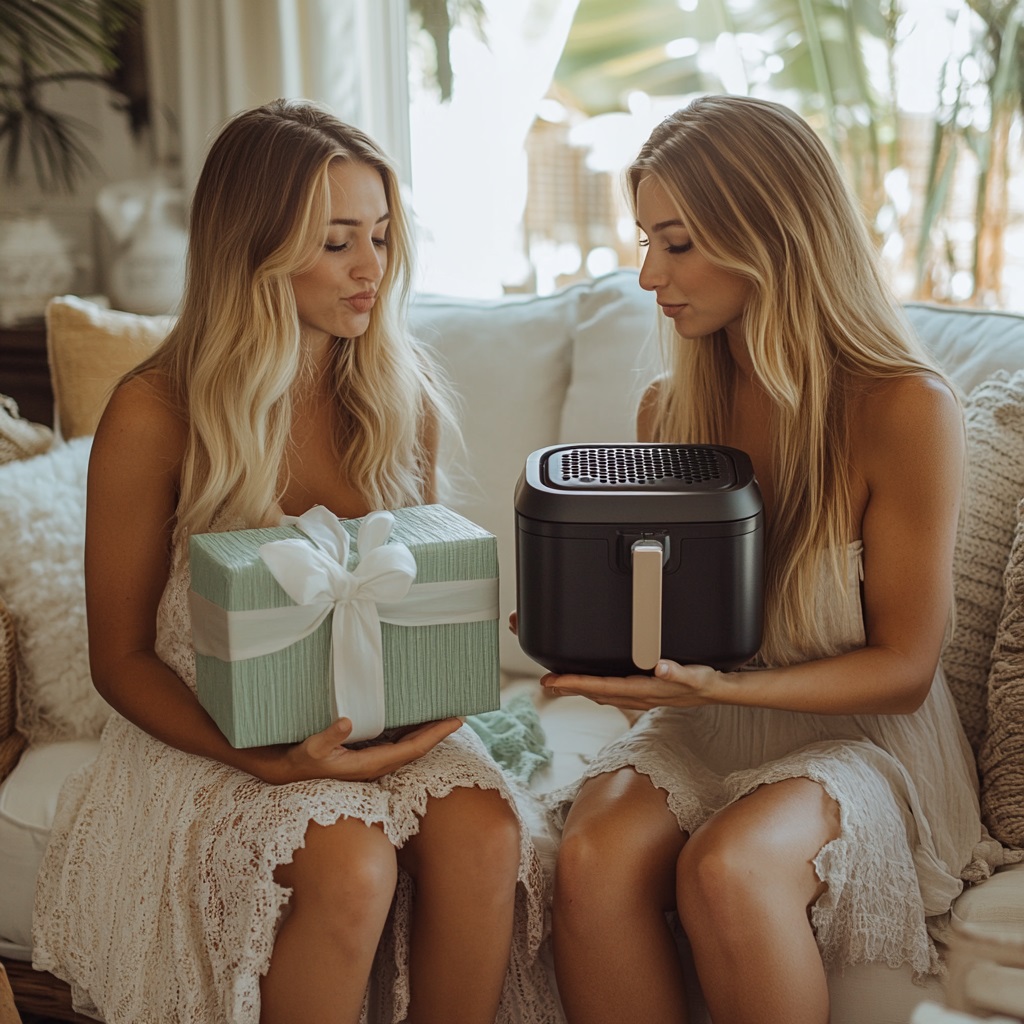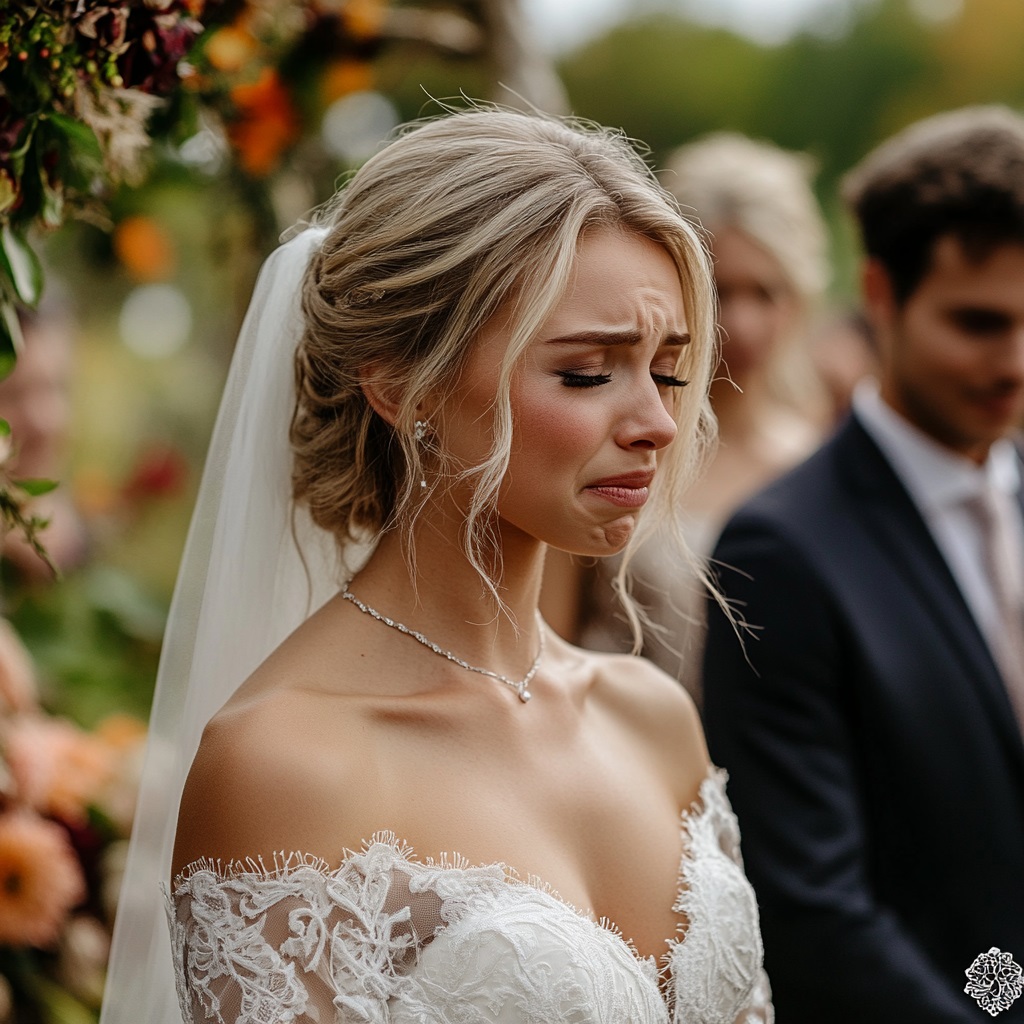My Closest Friends Gifted Me A $50 Air Fryer In My Wedding, So I Called Them Cheap Bastards
I never thought the closest friends I’d known since childhood would one day treat me like a wallet, use me for years, and then abandon me on the happiest day of my life.
From the beginning, we were inseparable. My friends and I had known each other since elementary school, growing up together, sharing secrets, and making promises we were sure we’d keep forever. We promised to be there for each other during every important moment—weddings, children, travels, birthdays—and to meet once a month, no matter what. As we got older, those promises seemed to hold us together, even as life took us down different paths.
But I was the last to get married. By the time I got engaged, all of my friends were already married, with children. I felt a bit behind, but they had always been so supportive, telling me, “You’ll find someone when the time is right.” And now, my time had come. I was excited, overjoyed, and I wanted them by my side.

When I started planning my bachelorette party, I sent out messages to the group, expecting excited responses. After all, we’d promised to celebrate together during moments like this. But instead, the replies came trickling in, one by one—reasons, excuses. “My husband’s on a business trip, and I have to look after the kids,” “I couldn’t find a nanny,” “It’s just not a good time for me right now.”
I tried to understand. They had children, busy lives, and responsibilities. But part of me was disappointed, hurt even. Weren’t these the same women who promised we’d always be there for each other? I brushed it off, hoping that they’d at least show up for my wedding and celebrate with me.
The wedding day arrived. My friends were there, but something felt off. They were distant, distracted, as if they couldn’t wait to leave. When it came time to open gifts, I couldn’t believe what I saw—a $50 air fryer, with a little note from the group of them saying it was a joint gift. That meant they each contributed only about $8.

I had specifically told them before the wedding that no one needed to give me anything expensive, but the gift wasn’t the issue. It was the lack of effort and care. These were my best friends. They were all financially well-off—one a business manager, another an accountant at a top firm. I had spent more than $1,000 on each of their weddings without a second thought. And this is what they gave me?
I snapped. Right there at the reception, I blurted out, “Are you guys really this cheap?” The room went silent. My friends, stunned, looked at me with a mixture of shock and offense. One by one, they quietly gathered their things and left.
As soon as they were gone, guilt washed over me. I had let my disappointment get the best of me. Maybe they had valid reasons. Maybe I was overreacting because they had children now, and their priorities were different. But still, something didn’t sit right.

A few months later, we had our class reunion. I was the only one from our group who showed up. I reached out to them, but the excuses were the same as before—“busy with the kids,” “can’t make it.” It stung. I felt more alone than ever, wondering if they had moved on without me.
At the reunion, I ran into an old classmate who was a bit drunk and chatty. As we talked, he confided in me, slurring his words but with surprising clarity. “You know, they’ve always treated you like their mobile wallet, right? They talk about it sometimes, like how you always pay for stuff.” I was stunned. I had never noticed it before, but as his words sank in, I started to remember.
Since we were kids, I had been the one paying for things—trips, dinners, nights out. I had always chalked it up to generosity, or assumed it was just because I wanted to be included. But now, I realized that I had been taken advantage of for years. They had never really valued me as a friend; they had just used me when it was convenient.
The realization hit hard. I spent about a week in a haze of sadness. I cried. I felt foolish. I replayed every memory, trying to understand how I had let myself be so used. But through it all, my husband was there. Every night, he listened to me pour out my heart, offering me the emotional support my so-called friends never did. Slowly, I felt the heaviness lift.

With his encouragement, I realized it was time to move on. I couldn’t keep clinging to toxic friendships that drained me. I needed to focus on myself—on my new life, my marriage, my happiness.
And that’s exactly what I did. We started traveling together, rediscovering joy in new experiences. I joined yoga and meditation classes, finding peace and balance in ways I never expected. The journey wasn’t easy, but day by day, I felt myself growing stronger, shedding the weight of those toxic relationships.
Over time, I found that I didn’t miss them as much as I thought I would. I felt lighter, freer. I no longer had to question whether I was being left out or taken advantage of. I was in control of my own life, my own choices. And for the first time in a long time, I felt truly happy.
This story is based on a true story. All the names in the story have been changed.

